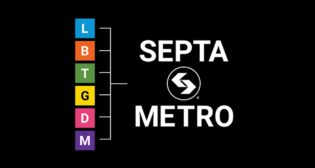
Dems Address Climate Change, Public Transit Needs With Two New Bills
Written by Marybeth Luczak, Executive EditorDemocrats in the U.S. Senate and House of Representatives on March 18 introduced two new bills—BUILD GREEN and Public Transit Capital Investment Relief—that are updated versions of the older BUILD and CIG programs.
The BUILD GREEN Infrastructure and Jobs Act would provide $500 billion in grant funding over ten years to electrify public transit and modernize rail, road and bridge infrastructure. The Public Transit Capital Investment Relief Act of 2021 would provide public transportation agencies that have qualifying projects in the Full Funding Grant Agreement (FFGA) stage of the Federal Transit Administration’s Capital Investment Grants (CIG) Program with an increased federal cost share.
BUILD GREEN
U.S. Sen. Elizabeth Warren (D-Mass.) and Rep. Andrew Levin (D-Mich.), along with Sen. Edward J. Markey (D-Mass.) and Rep. Alexandria Ocasio-Cortez (D-N.Y.), modeled the BUILD GREEN (Better Utilizing Investments to Leverage Development and Generating Renewable Energy to Electrify the Nation’s) Infrastructure and Jobs Act after the U.S. Department of Transportation’s BUILD grant program to “jumpstart transportation electrification.”
States, local governments, transit authorities, port authorities and Native American tribes would be eligible for grants.
Among the bill’s highlights:
• $150 billion, at minimum, would be allocated for electric passenger rail, electric vehicles and electric vehicle charging equipment “to meet the estimated funding needed to transition to all-electric public transit,” according to the legislators.
• The DOT would select eligible projects that “maximize sustainability and cost savings,” the legislators reported. It would also “prioritize and devote at least 40% of program funding to projects that serve a frontline or vulnerable community; are located in an area that has experienced high adverse health and environmental impacts from pollution; and/or that improve access to or add a new green space to the community.”
• Eligible projects using electrical energy “must add renewable energy generation to cover the energy consumed by that project,” the legislators noted.
• Projects must follow existing DOT Buy America provisions.
• Each state would receive at least $2 billion for eligible programs, with no state receiving more than $40 billion. “Grants will be distributed on an equitable geographical basis and prioritize low per capita income areas,” according to the legislators.
• DOT will fund up to 85% of project costs, “a 5% increase from traditional BUILD grant cost-sharing to incentivize green building over traditional projects,” the legislators reported. “The Transportation Secretary will have the option to waive the requirement entirely and fully fund select projects.”
• All project contracts “must include strong labor provisions for all workers,” according to the legislators.
The bill is cosponsored by Sens. Jeff Merkley (D-Ore.), Alex Padilla (D-Calif.), Richard Blumenthal (D-Conn.), Cory Booker (D-N.J.), and Bernie Sanders (I-Vt.), and cosponsored in the House by Reps. Jerrold Nadler (D-N.Y.), Jamie Raskin (D-Md.), Jan Schakowsky (D-Ill.), Raúl M. Grijalva (D-Ariz.), Gwen Moore (D-Wisc.), Pramila Jayapal (D-Wash.), Brendan F. Boyle (D-Pa.), Nanette Diaz Barragán (D-Calif.), Chellie Pingree (D-M.E.), Adriano Espaillat (D-N.Y.), Ayanna Pressley (D-Mass.), Rashida Tlaib (D-Mich.), Mondaire Jones (D-N.Y.), and Jahana Hayes (D-Conn.), and Jamaal Bowman (D-N.Y.).
Public Transit Capital Investment Relief
The Public Transit Capital Investment Relief Act of 2021 was introduced by U.S. Sen. Patty Murray (D-Wash.), a senior member of the Senate Appropriations Committee, along with Sens. Maria Cantwell (D-Wash.), Dianne Feinstein (D-Calif.), Alex Padilla (D-Calif.), Amy Klobuchar (D-Minn.), Tina Smith (D-Minn.), and Dick Durbin (D-Ill.).
The bill would allow public transit agencies with CIG FFGAs that were signed on or after Jan. 1, 2017 to “opt-in to receive an additional 30% of total project costs.” The maximum federal cost share would remain at 80% of the total project cost; the legislators noted, however, that a “2017 FTA report found that most projects receiving CIG funding had a federal cost share below 60% and for many projects that share was much less.” The bill would also allow agencies to defer payment of non-Federal share project costs. Funding from this legislation would only apply to projects that are under construction or near completion—not in the engineering phase.
Two Sound Transit projects would be among those qualifying: the Lynwood Link Extension and the Federal Way Link Extension. (A complete list of CIG projects is on the FTA website.)
“Transit systems with projects that are under or near construction are uniquely positioned to assist the nation in its economic recovery and provide jobs in a period of historic unemployment,” the legislators noted. “Increasing the federal cost share of impacted projects in the FFGA stage would have an immediate impact on public transit agencies’ ability to continue to offer riders with planned new or expanded service and would provide opportunities for economic growth in regions across the nation.”



